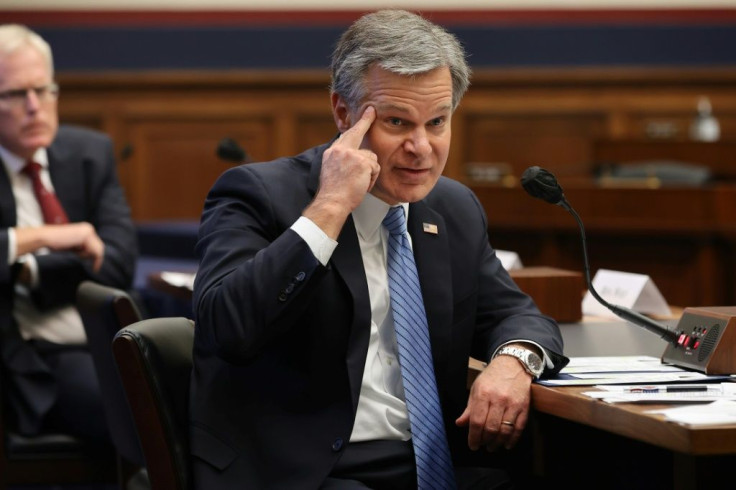Congress Confronts FBI's Domestic Terror Response As Government Grapples With Extremism
FBI Director Christopher Wray received a dressing-down from Congress Tuesday as lawmakers picked apart the FBI’s actions leading up to the Jan. 6 riots. Like many other government agencies, the FBI is reexamining its approach to extremism and domestic terror threats, but Congress says it could be doing more, The Washington Post reports.
Wray arrived with some encouraging news: the FBI has expanded its investigations into potential domestic terror threats. The current number sits at 2,000 simultaneous cases, double what it was when Wray was appointed in 2017.
Wray also conceded that the Jan. 6 riots had been a failure, and said the FBI was reviewing its procedures as a result. The agency had been aware of the potential threat, but the extent of the warning it gave to Capitol police was a single report detailing calls for violence at the protest.
“I would certainly think that something as violent as an insurrection at the Capitol would warrant a phone call or something,” D.C. police chief Robert Contee said during his own testimony the week prior.
Congress seemed to echo that sentiment, asking Wray why more aggressive action hadn’t been taken.
“What I don’t understand is why this chatter, raw intelligence, didn’t prompt a stronger warning and alarm going to the very top of the United States Congress, because clearly the United States Congress was under severe threat,” said Sen. Richard Blumenthal, D-Conn.

Wray agreed that changes needed to be made, but said that the FBI couldn’t treat every single threat as the setup for an inevitable attack.
“The whole idea is they’re supposed to go back and pass it up their chain of command,” he said. “...I do not consider what happened on Jan. 6 to be an acceptable result. And that’s why we’re looking so hard at figuring out how can the process be improved.”
The FBI is far from the only federal agency struggling to deal with extremism. A recently-published report from the Department of Defense details the Pentagon’s difficulty identifying white supremacists in its ranks. The military has responded with a 60-day stand-down to figure out where to begin combating the spread of extremism.
© Copyright IBTimes 2024. All rights reserved.





















